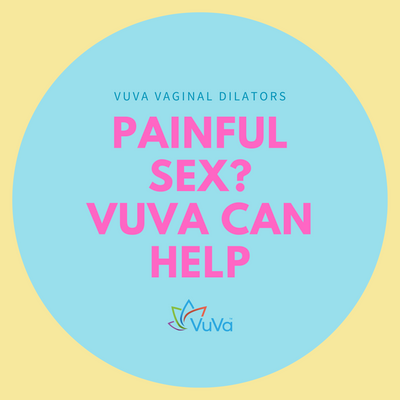
| Tara Langdale
How Long Do You Have to Dilate After MTF? A Complete Guide to Dilation After Vaginoplasty
If you’re preparing for or recovering from gender-affirming vaginoplasty as a transgender woman, one of the most common and important questions you’ll hear is:
“How long do you have to dilate after MTF surgery?”
The short answer is that dilation is most intensive during the first year and usually becomes a less frequent but ongoing part of long-term care. The fuller truth is that how long and how often you’ll need to dilate depends on your body, your surgical outcome, your sexual activity, and your consistency.
This guide will walk you through everything you need to know about post-vaginoplasty dilation: how long it lasts, why it matters, how to reduce pain, and how to choose the most affirming tools like VuVa Magnetic Dilators, which are used by thousands of women, including those recovering from surgery, to support healing in a holistic, safe, and empowering way.
What Is Dilation and Why Is It Necessary?
During MTF vaginoplasty, also called transfeminine vaginoplasty, a vaginal canal is surgically created using penile and or scrotal tissue. While life-affirming and medically transformative, this new vaginal space is seen by your body as a wound, which means your tissues will try to contract or close the space as they heal.
Dilation prevents that from happening
By inserting vaginal dilators regularly during recovery, you keep the canal open by preserving depth and width, flexible by preventing scarring or adhesions, and functional by supporting comfort during exams or intimacy.
Dilation is a key part of surgical success and it’s just as critical as the operation itself
So, How Long Do You Have to Dilate After MTF Surgery?
Here’s what you can typically expect based on current best practices and surgeon recommendations
Weeks 1–6 (Acute Phase)
You’ll dilate 3 to 4 times per day
Each session lasts 15 to 30 minutes
You’ll start with smaller dilators and gradually work up in size
Tissue is healing, so sessions may be tender — use lots of lubrication, be gentle, and follow all surgeon instructions
Weeks 6–12 (Subacute Phase)
Dilation reduces to 2 to 3 times per day
Scar tissue begins remodeling
Tissue becomes more stable, and inflammation starts to reduce
Months 3–12 (Stabilization Phase)
Dilation continues at 1 to 2 times per day or 3 to 5 times per week
Tissue is more resilient, but ongoing maintenance is critical
Sexual activity that includes vaginal penetration can supplement but not completely replace dilation at this stage
After 12 Months (Maintenance Phase)
Most trans women reduce to dilation 1 to 3 times per week
If you’re sexually active, penetration may cover some of your maintenance
Consistency is still important even if infrequent
Every body is different. Some trans women may need more frequent dilation long-term, especially if they’ve had healing complications, skipped sessions, or haven’t been sexually active
What Happens If You Stop Dilation?
Skipping dilation, especially in the first year, can result in loss of depth, narrowing of the canal (stenosis), scar tissue formation, or discomfort during intimacy or exams
If you take a break and notice resistance, discomfort, or decreased depth, resume gentle dilation immediately and consider consulting a pelvic floor therapist with experience in transgender care
Choosing the Right Tools: VuVa Magnetic Dilators
Many trans women report that standard plastic dilators feel too clinical, too hard, or too painful, leading to skipped sessions and anxiety
That’s why VuVa Magnetic Dilators have become a go-to choice for both transgender and cisgender women healing from vaginal trauma, surgery, or pain
What makes VuVa different
They are made with soft and smooth body-safe construction
Each dilator is embedded with neodymium magnets to improve blood flow and reduce inflammation
They are FDA-cleared, non-hormonal, and made in the USA
They were developed by Tara Langdale-Schmidt, a woman who personally experienced painful sex after surgery and created these tools out of necessity
Tara’s story resonates deeply. She understood the emotional toll of painful dilation and wanted a gentler, healing solution. Today, over 250,000 women have benefited from VuVa’s magnetic innovation
Best VuVa Products for MTF Dilation Support
VuVa Full Magnetic Set
Perfect for the full recovery journey. This set includes five graduated sizes so you can slowly and comfortably increase depth over time. Ideal for those in the early and middle phases of dilation
VuVa 3, 4, 5, 6 Magnetic Set
Designed for individuals maintaining dilation or returning after time off. These sizes match the most-used tools for long-term comfort and canal maintenance
Explore both options at www.vuvatech.com and find what fits your body and healing stage best
Common Challenges and How to Overcome Them
Pain During Dilation
Use a warm compress before dilation and generous amounts of water-based lubricant. VuVa’s magnetic effect helps reduce inflammation and promote tissue comfort
Dysphoria or Emotional Discomfort
Dilation can feel triggering for some. You’re not alone. Practice mindful dilation by playing calming music, using affirmations, and reclaiming dilation as a form of self-care
Muscle Tightness or Guarding
Many trans women experience pelvic floor tension due to fear, trauma, or anxiety. Work with a pelvic rehab therapist who’s trained in trans-affirming care to help with relaxation techniques
Avoidance
Skipping sessions out of fear or pain can lead to setbacks. Start again with smaller sizes. Try wearable dilators for passive stretching or shorter, more frequent sessions
Tips for Long-Term Dilation Success
Create a routine and try to stick to the same time each day
Keep a dedicated, safe space for your dilation kit
Pair dilation with relaxing activities like meditation or soft music
Keep your VuVa dilators clean and easily accessible
Celebrate your progress and stay patient with yourself
Sex vs Dilation: What Counts?
Once your surgeon clears you — usually around 12 weeks post-op — vaginal sex may begin to substitute for some dilation sessions
Penetration that is frequent, comfortable, and full-depth can help maintain the canal
However, not everyone is sexually active and some penetration doesn’t reach the full depth. Most surgeons still recommend light weekly dilation even in sexually active patients
Can You Ever Stop Dilation Completely?
Some trans women, years post-op and with consistent sexual activity, report being able to stop dilation entirely without negative effects
But others notice tightness or loss of depth if they pause too long. For most, long-term success comes from weekly maintenance, listening to your body, and having a comfortable set of tools ready if needed
In short, you don’t have to dilate forever, but you do need to honor what your body needs — and that might mean occasional maintenance dilation throughout life
Final Thoughts: Healing Is a Personal Journey
So, how long do you have to dilate after MTF surgery
Diligently for 6 to 12 months
Less frequently after that
Occasionally for life, for most people
But most importantly, dilation isn’t just a medical routine. It’s a powerful act of self-affirmation, especially when it’s approached with patience, safety, and care
With the right tools like VuVa Magnetic Dilators and the support of trauma-informed professionals, dilation doesn’t have to be scary or painful. It can be an empowering way to care for your body and your identity
Ready to Start or Improve Your Dilation Routine
Explore the VuVa Full Magnetic Set or the 3, 4, 5, 6 Magnetic Set at
www.vuvatech.com
Let your healing be gentle, affirming, and effective — just like you deserve













